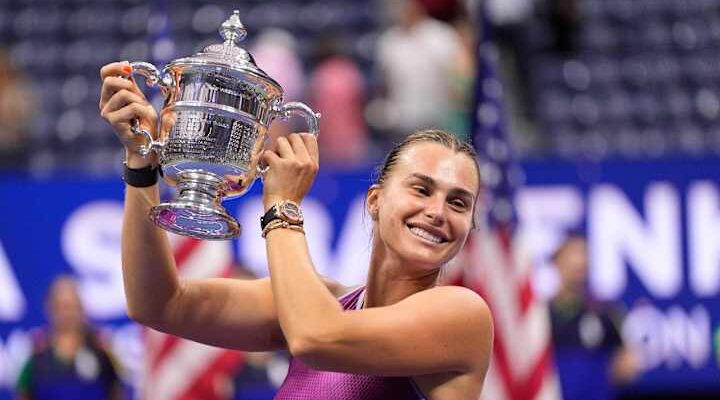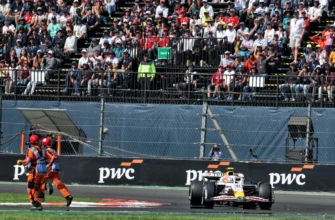Aryna Sabalenka`s 2025 tennis season was marked by a series of agonizing near-misses and profound disappointments at the sport`s most prestigious events. Her frustrations began early, with a disheartening loss at the Australian Open final in January, where her visible anger culminated in a racket-smashing incident. The quest for a major title continued at Roland Garros, but a defeat to Coco Gauff led to a widely publicized display of emotional distress.
The pattern persisted at Wimbledon, where Amanda Anisimova halted her progress in a thrilling semifinal. Despite consistently holding the world No. 1 ranking throughout the season and securing two significant 1000-level titles, Sabalenka found major glory elusive. These setbacks prompted a crucial period of introspection and recalibration for the Belarusian star.
Arriving at the US Open, the 27-year-old Sabalenka was fueled by an intense desire to redeem her challenging year and successfully defend her hard-earned title. This powerful resolve ultimately led to a “fairy-tale ending,” a sentiment echoed by her performance coach, Jason Stacy, who highlighted her renewed focus after Roland Garros, including reading a motivational book.
In a gripping final on Arthur Ashe Stadium, Sabalenka once again confronted Anisimova. Despite facing a crowd largely in favor of her American opponent, Sabalenka clinched her fourth major title with a compelling 6-3, 7-6 (3) victory, achieved in just 94 minutes. The emotional weight of the triumph was palpable; after Anisimova`s final return sailed long, Sabalenka collapsed to her knees, tears flowing freely, while the New York crowd erupted in a thunderous ovation under the closed roof. After several moments, she rose to celebrate her hard-won success.
This victory was more than just another title; it was a historic feat. Sabalenka became the first woman to successfully defend her US Open title since Serena Williams accomplished it over a decade prior. Crucially, it spared her the unwanted distinction of being the first woman since Justine Henin in 2006 to lose three major finals in a single season. Her profound relief was evident.
“Those two finals where I completely lost control over my emotions, I just didn’t want this to happen again,” Sabalenka revealed in an ESPN interview. “And there were a few moments where I was like this close to just letting it go. But I was like, `Come on now. You cannot do that. You just have to stay focused and keep going, keep trying.` And it’s really helped me.”
Sabalenka`s immense power, raw talent, relentless work ethic, and unwavering ambition have always been undisputed. Unlike many of her peers who excelled in junior tennis – Anisimova, for instance, won the 2017 US Open girls` title – Sabalenka methodically built her professional career, securing her first WTA title in 2018 and a US Open doubles title the following year.
A natural perfectionist, Sabalenka is ceaselessly dedicated to honing her craft. Her commitment was vividly demonstrated in 2022 when she overcame debilitating serving issues with the aid of a biomechanics expert, a period during which she even contemplated retirement. Her rigorous self-discipline also meant avoiding excessive downtime, fearing any signs of rust upon returning to practice.
This unwavering dedication has been the bedrock of her remarkable consistency. Since making the strategic decision to focus exclusively on singles in 2021 and subsequently reaching her first major semifinal at Wimbledon, Sabalenka has been an undeniable force on the tour. Following her pivotal serve improvements, she has reached at least the quarterfinals in every major, advanced to four of the last five major finals, and all six recent hard-court finals. Her grip on the world No. 1 ranking, held since October, shows no signs of loosening.
However, such unparalleled success inevitably brings immense external pressure and even higher self-imposed expectations. Previous failures to meet her own lofty standards led to public displays of frustration, including the notorious racket-smashing incident at the Australian Open and controversial post-match remarks at Roland Garros, where she attributed her loss to Gauff to challenging windy conditions. “Conditions were terrible, and she simply was better in these conditions than me,” Sabalenka stated, adding, “I think it was the worst final I ever played.”
While her initial comments were perceived as poor sportsmanship (for which she later issued an apology, graciously accepted by Gauff), they prompted her team to focus on developing strategies for Sabalenka to win even when her performance or external conditions were less than ideal. Max Mirnyi, a Belarusian former world doubles No. 1 and a six-time major doubles champion, joined her team before the hard-court season, reinforcing a critical lesson.
“There’s no such thing as a perfect tennis match,” Mirnyi emphasized. “There’s no such thing as perfection on a tennis court. You can take the best matches of [Novak] Djokovic and [Roger] Federer or Steffi Graf … there will always be some things that didn’t go according to plan, and they’re the better champions that know how to respond and adjust on the moment, on the go.”
This philosophy, alongside Billie Jean King`s iconic quote, “Pressure is a privilege… Champions adjust,” prominently displayed at the entrance of Arthur Ashe Stadium, became a guiding principle for Sabalenka and her team.
On Saturday, with tennis legends like Billie Jean King herself in attendance, Sabalenka perfectly embodied this principle of adjustment. Despite twice holding a break lead in the second set and struggling to close out the match – notably missing an seemingly easy overhead lob at 5-4, which allowed Anisimova to break back – she regained her composure. “You cannot make these kind of mistakes on important points,” she reflected, “So, yeah, that was the moment, but then I turned around, and I took a deep breath in, and I was, like, `OK, it happens. It’s in the past. Let’s focus on the next one.`”
A tiebreak ensued, where Sabalenka, buoyed by an impressive streak of 19 consecutive tiebreak wins, seized decisive control. Though she required three match points, her victory felt inevitable, the final points merely a formality. As she was announced for the first time as the 2025 US Open champion, Sabalenka made her way to her team, exchanging high-fives with fans and embracing her coaching staff, agent, and friends.
During the trophy presentation, she playfully addressed her team: “I mean it’s been tough this year with those finals… I was really terrible towards you but come on. Worth it, right? Thank you so much. I love you. You’re my family.”
Later, in a television interview, Sabalenka expressed her intention to celebrate with drinks, underscoring the importance of “enjoy[ing] it” after such immense effort. Her radiant smile confirmed that the preceding heartbreaks only intensified the sweetness of this hard-won triumph. Observing a tearful Anisimova, who stood with her runner-up trophy, Sabalenka offered heartfelt, empathetic advice:
“I know how much it hurts losing in the finals,” Sabalenka said, turning to Anisimova. “But trust me, the moment you win your first one, and you’re going to win it … you’re going to enjoy it even more after all of the hard losses in the finals.”






